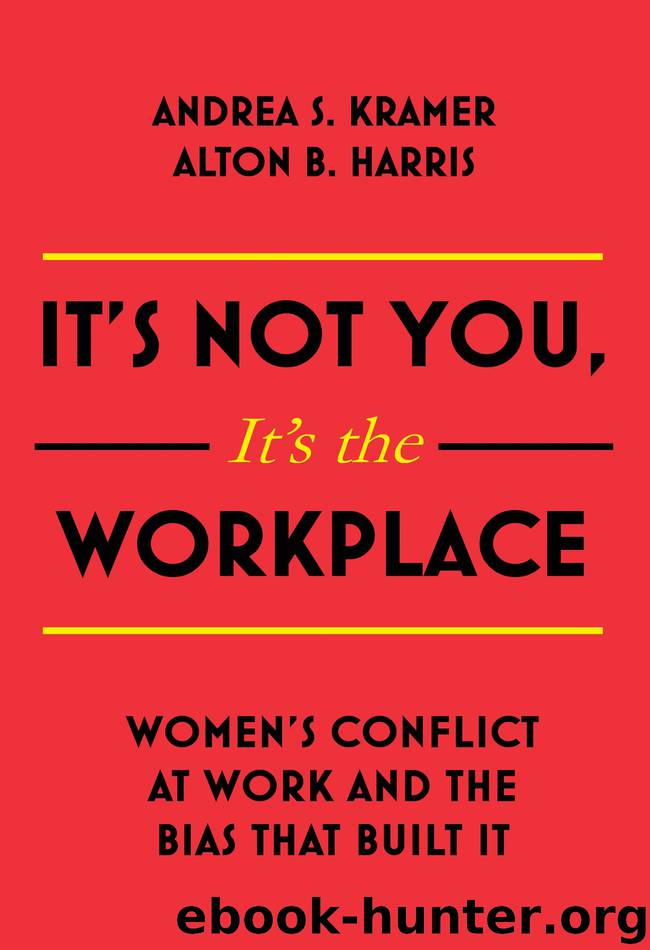It's Not You It's the Workplace by Andrea S. Kramer & Alton B. Harris

Author:Andrea S. Kramer & Alton B. Harris
Language: eng
Format: epub
Publisher: Quercus
Published: 2019-08-29T16:00:00+00:00
Quality
Because childcare is an extremely low-profit service, US childcare is typically of poor quality. Factoring in real estate, supplies, insurance, and labor costs, childcare center expenses are high, particularly in states that require one caregiver for every three or four children. Despite their high costs, childcare centers find it very difficult to raise their prices because most of their customers are already paying all they can afford. As a result, childcare centers have an incentive to provide only bare-bones services, in barely adequate facilities, by people with minimal training who are paid very low wages. Consequently, only 11 percent of childcare establishments in the United States are accredited by the National Association for the Education of Young Children or the National Association for Family Childcare.18
Commenting on the childcare situation in the United States, Brigid Schulte, one of the authors of the New America study entitled “Our Fragmented, Patchwork Care System,” stated, “The thing to remember about childcare is that the market really doesn’t work. . . . [Childcare] has to be subsidized. It has to be seen as a public good.”19 Why the market for childcare doesn’t work and how it could be fixed are vitally important issues.20 Our concern at the moment, however, is not with how to fix our country’s abominable childcare system, but to make clear that the lack of affordable, quality childcare is one of the main reasons why so many women find it so hard to simultaneously have Careers and Families.
Intensive Mothering
The prevailing ideology in the United States as to what is required to be a good mother is inconsistent with a mother pursuing a Career. Mothers are continuously told by the media and the popular press that a mother’s care is unique and irreplaceable, and that regardless of a mother’s other interests, needs, or obligations, her children must always come first.21 Thus this ideology that good mothering equals intensive mothering rests on the belief that good mothers are not employed.22
The nature of intensive mothering, and the fallacies underlying the idea, were first spelled out by Sharon Hays in her 1996 book, The Cultural Contradictions of Motherhood.23 Hays argued that intensive mothering was “the socially dominant form of child rearing in the contemporary United States.”24 More than 20 years later, intensive mothering is still the dominant parenting ideology in the United States.25 While there are competing models of mothering, none has anywhere near the cultural influence of intensive mothering. Indeed, when both the French approach to parenting26 and the Free Range approach27 were first proposed, they were met with strong negative reactions, anger, and resistance. The French approach, set out in Bringing Up Bebe, “helps kids eat normal foods, behave themselves, and sleep all night.”28 The Free Range approach encourages parents to instill independence in young children by accurately assessing the risks that their children face and then helping them make choices and develop independence.29
Intensive mothering is more likely to be practiced by those women with the luxury to expend extravagant amounts of time, energy, and money on their children.
Download
This site does not store any files on its server. We only index and link to content provided by other sites. Please contact the content providers to delete copyright contents if any and email us, we'll remove relevant links or contents immediately.
| Ethics | Etiquette |
| Fashion & Image | Health & Stress |
| Motivation & Self-Improvement | Work Life Balance |
| Workplace Culture |
Tools of Titans by Timothy Ferriss(8396)
Change Your Questions, Change Your Life by Marilee Adams(7783)
Deep Work by Cal Newport(7083)
Playing to Win_ How Strategy Really Works by A.G. Lafley & Roger L. Martin(6306)
Man-made Catastrophes and Risk Information Concealment by Dmitry Chernov & Didier Sornette(6019)
Big Magic: Creative Living Beyond Fear by Elizabeth Gilbert(5772)
Digital Minimalism by Cal Newport;(5765)
Ego Is the Enemy by Ryan Holiday(5450)
The Slight Edge by Jeff Olson(5417)
The Motivation Myth by Jeff Haden(5212)
The Laws of Human Nature by Robert Greene(5208)
Stone's Rules by Roger Stone(5088)
Tuesdays with Morrie by Mitch Albom(4784)
Eat That Frog! by Brian Tracy(4540)
Rising Strong by Brene Brown(4459)
Skin in the Game by Nassim Nicholas Taleb(4249)
The Money Culture by Michael Lewis(4207)
Bullshit Jobs by David Graeber(4190)
Skin in the Game: Hidden Asymmetries in Daily Life by Nassim Nicholas Taleb(4007)
